Google Cloud Platform Advantages and Disadvantages: In this article, we will explore Google Cloud Platform, Advantages, and Disadvantages. But Firstly, you want to know about Google Cloud Platform. The Google Cloud Platform (GCP) is a set of products and services that Google offers to help developers and organizations create and run cloud-based applications. It provides advantages including simple scaling, accessibility to a worldwide network of data centers, a variety of services, and strong safety precautions. However, it may be difficult to use, the pricing may be confusing, the support may be restricted, there is a chance of becoming dependent on Google’s services, and regional availability may differ.
Features of Google Cloud Platform
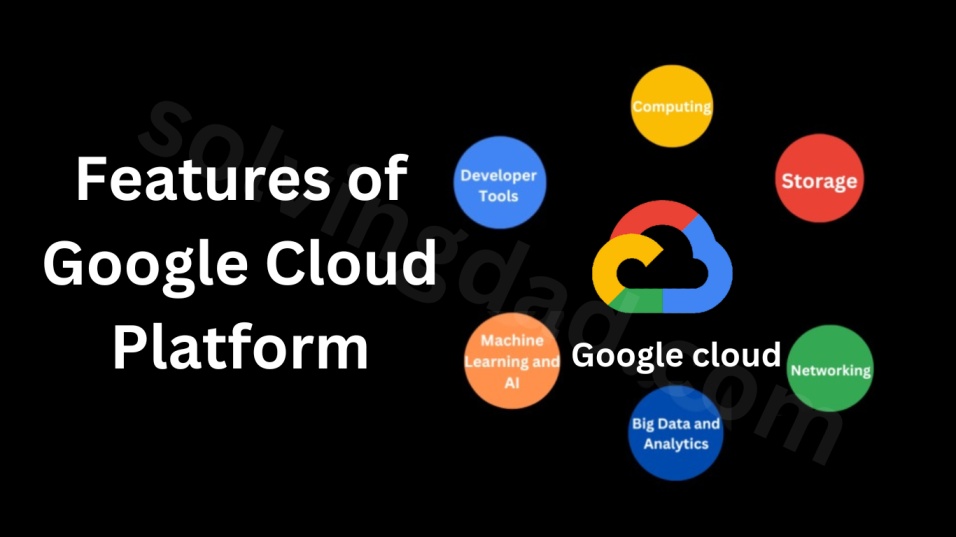
Features of Google Cloud Platform: The Google Cloud Platform (GCP) provides a wide range of capabilities that satisfy the various requirements of companies and developers. Some features of the Google Cloud Platform are as under:
Computing:
Google Cloud Platform offers flexible and scalable computing resources that let customers build and control virtual machines, containers, and serverless operations to power their applications.
Storage:
GCP provides a variety of storage choices, including managed relational and non-relational databases (Cloud SQL and Cloud Firestore), object storage (Cloud Storage), block storage (Persistent Disc), and object storage (Cloud Storage).
Networking:
GCP offers a strong and secure network infrastructure that enables customers to set up load balancers, configure firewalls, create virtual private clouds (VPCs), and establish private connections to physical networks.
Big Data and Analytics:
BigQuery for data warehousing, Dataflow for data processing, and Pub/Sub for real-time messaging are just a few of the services that are available through GCP for handling and analyzing massive datasets.
Machine Learning and AI:
GCP provides a range of machine learning and AI tools and APIs, such as AutoML for creating unique models, AI Platform for training and deploying models, and Vision and Speech APIs for speech and image recognition.
Internet of Things:
Organizations may create and implement IoT solutions at scale by using GCP’s services for connecting, managing, and analyzing data from IoT devices.
Developer Tools:
In addition to Cloud Build for continuous integration and delivery, Cloud Functions for serverless computing, and Cloud Source Repositories for version control, GCP also provides a variety of developer-friendly tools.
Security and Identity Management:
The confidentiality, integrity, and availability of data and applications are guaranteed by the advanced security features integrated into GCP, including as identity and access management (IAM), encryption at repose and in transit, and DDoS protection.
Management and Monitoring:
Cloud Monitoring for indicators of performance, Cloud Logging for centralized log management, and Cloud Deployment Manager for infrastructure automation are some of the tools for controlling and monitoring resources that GCP offers.
Hybrid and Multi-cloud Integration:
For organizations to implement a hybrid or multi-cloud architecture, GCP offers options for connecting with physical systems and other cloud providers.
Components of Google Cloud Platform
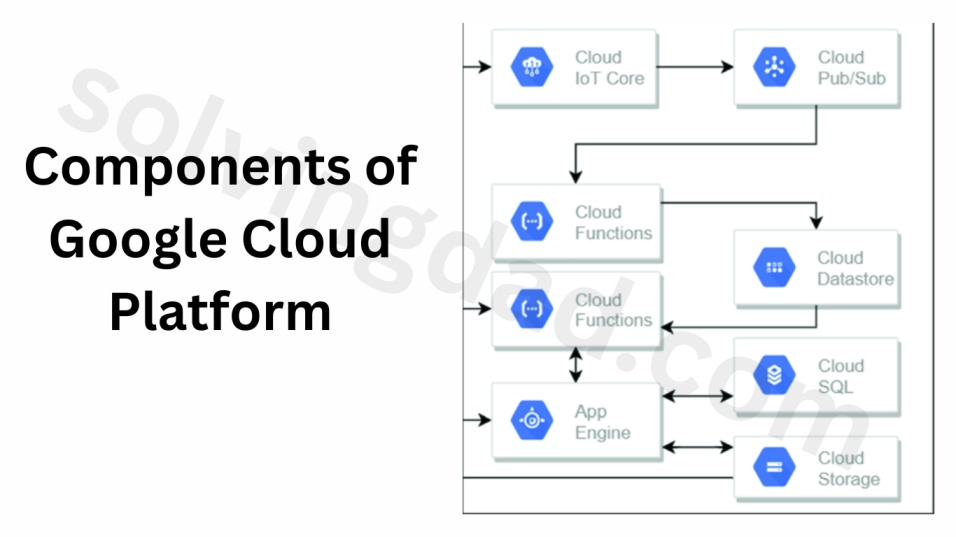
Google Cloud Platform (GCP) consists of several key components that work together to provide a comprehensive cloud computing environment. These components include:
- Compute Engine: A service that offers virtual machines (VMs) for running applications and workloads on Google’s infrastructure.
- App Engine: A fully managed platform for building and deploying scalable web applications and services without worrying about infrastructure management.
- Kubernetes Engine: A managed environment for deploying, managing, and scaling containerized applications using Kubernetes.
- Cloud Storage: A scalable and durable object storage service for storing and retrieving data in the cloud.
- Cloud Bigtable: A fully managed, high-performance NoSQL database service suitable for large-scale, high-traffic workloads.
- Cloud Spanner: A globally distributed, horizontally scalable, and strongly consistent relational database service.
- BigQuery: A serverless and highly scalable data warehouse that enables fast and interactive analysis of large datasets using SQL queries.
- Cloud Pub/Sub: A messaging service for building event-driven systems that allow reliable and asynchronous communication between applications.
- Cloud Functions: A serverless compute service that allows users to write and deploy event-driven functions in response to events in GCP or external services.
- Cloud AI: A suite of artificial intelligence and machine learning services, including AutoML, Vision AI, Natural Language Processing, and Translation API, for building intelligent applications.
- Cloud Networking: A collection of networking services, including Virtual Private Cloud (VPC), load balancing, DNS, and VPN, to create secure and scalable network architectures.
- Cloud IAM: Identity and Access Management service that provides centralized control and granular access permissions to GCP resources.
Also, Read What are the Services in Cloud Computing?
Advantages of Google Cloud Platform:
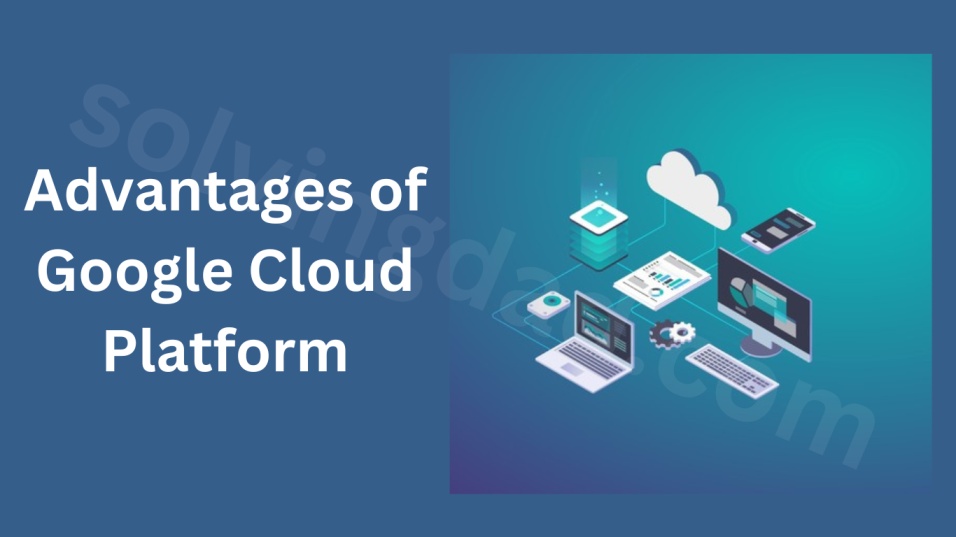
- Scalability: Google Cloud Platform offers high scalability, allowing users to easily scale their resources up or down based on demand, ensuring efficient resource utilization.
- Global Infrastructure: Google has a vast global network of data centers, enabling users to deploy their applications and services closer to their target audience, reducing latency and improving performance.
- Wide Range of Services: Google Cloud Platform provides a comprehensive suite of services, including computing, storage, networking, databases, AI, and machine learning tools, empowering users to build and deploy diverse applications and solutions.
- Integration with Google Services: Integration with other Google services, such as BigQuery, Gmail, and Google Analytics, allows for seamless data exchange and utilization across different platforms.
- Security and Compliance: Google Cloud Platform incorporates robust security measures and compliance certifications, ensuring data protection, encryption, and regulatory compliance for various industries and regions.
Disadvantages of Google Cloud Platform:
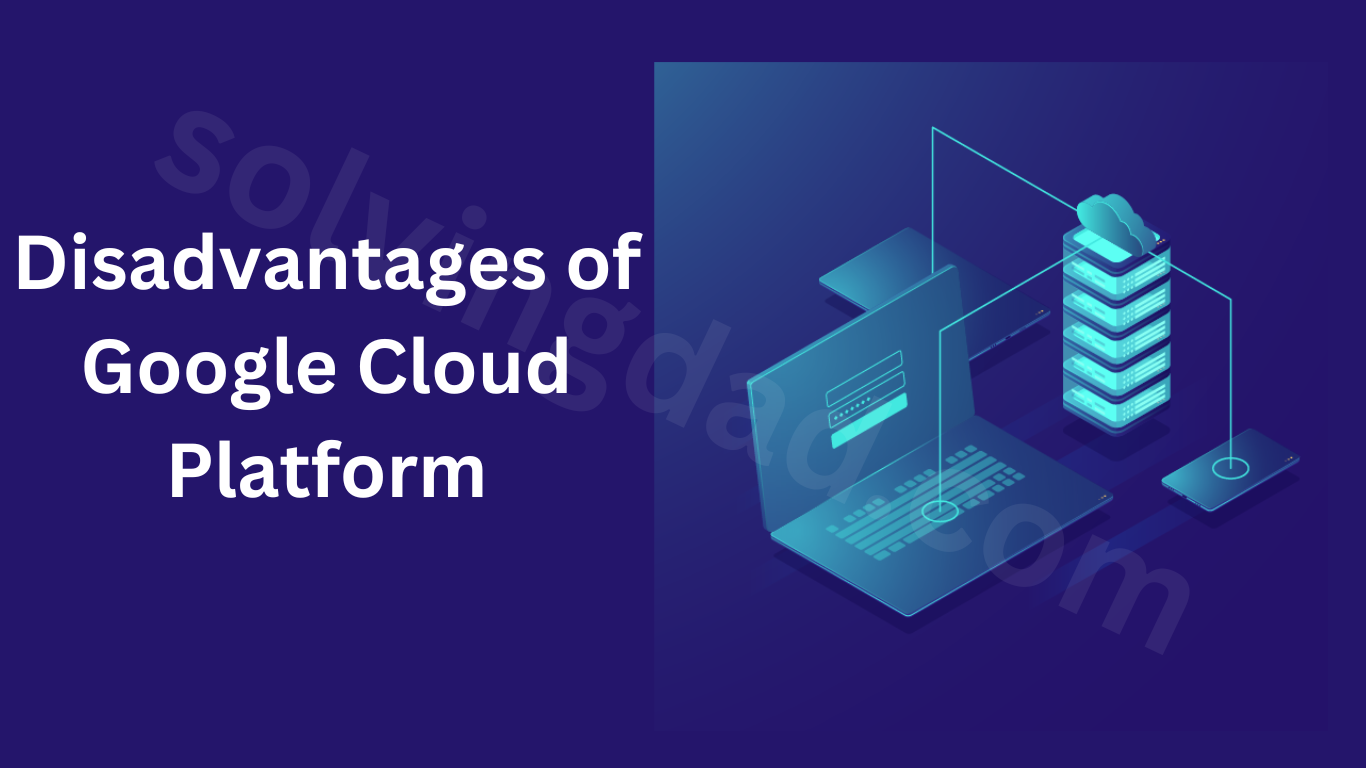
- Complexity: The vast array of services and options available on the Google Cloud Platform can be overwhelming for users new to the platform, requiring a learning curve and potential challenges in setup and configuration.
- Pricing Structure: The pricing structure of Google Cloud Platform can be complex, with multiple factors affecting costs, such as resource usage, storage, network egress, and additional services, requiring careful monitoring and optimization to manage expenses effectively.
- Support: While Google provides support options for Google Cloud Platform, some users may find the level of support and responsiveness to be insufficient for their specific needs, especially for critical issues requiring immediate assistance.
- Vendor Lock-In: As with any cloud service provider, there is a risk of vendor lock-in, where dependencies on specific Google Cloud Platform services and APIs may make it challenging to migrate to alternative platforms or vendors in the future.
- Limited Regional Availability: Although Google has an extensive global network, the availability of certain services and data centers may be limited in some regions, potentially impacting deployment options and performance for users in those areas.
Also, Read What is the Future of Esports in India 2023
Alternatives of the Google Cloud platform
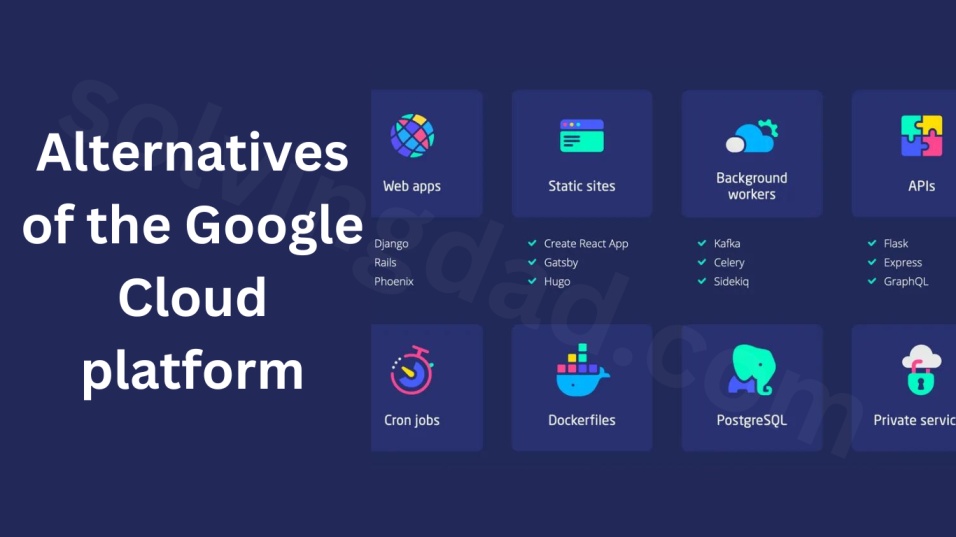
There are several alternatives to Google Cloud Platform (GCP) that provide similar cloud computing services. Some notable alternatives include:
- Amazon Web Services (AWS): AWS is a leading cloud platform offered by Amazon. It provides a wide range of services, including computing, storage, databases, networking, AI, and machine learning.
- Microsoft Azure: Azure is Microsoft’s cloud computing platform that offers a comprehensive suite of services for building, deploying, and managing applications and services in the cloud.
- IBM Cloud: IBM Cloud provides a range of infrastructure, platforms, and software services for businesses, including compute resources, storage, databases, AI, and blockchain.
- Oracle Cloud Infrastructure (OCI): OCI is Oracle’s cloud platform that offers services for computing, storage, networking, databases, and AI, with a focus on enterprise applications and workloads.
- Alibaba Cloud: Alibaba Cloud is a cloud computing platform offered by Alibaba Group. It provides a wide range of services, including computing, storage, networking, databases, and AI, primarily targeting businesses in the Asia-Pacific region.
- DigitalOcean: DigitalOcean offers a simplified cloud platform focused on developers, providing scalable compute instances, storage, and networking services.
- Heroku: Heroku is a cloud platform that specializes in application deployment and management, with a focus on supporting various programming languages and frameworks.
- Vultr: Vultr is a cloud provider offering high-performance compute instances, block storage, and networking services, with a focus on affordability and simplicity.
FAQ
What is Google Cloud Storage called?
Google Cloud Storage is called GCS.
Is Google Cloud private or public?
Google Cloud is a public cloud platform.
What is Google Cloud Platform?
Google Cloud Platform (GCP) is Google’s cloud computing platform that offers a variety of services and tools for building, deploying, and managing applications in the cloud.
What is the storage limit for GCP?
Google Cloud Storage provides a default limit of 5 TB per bucket, but it can be increased by contacting Google Support.
Conclusion:
In Conclusion, Google Cloud Platform (GCP) provides a strong and complete collection of cloud computing services with a variety of benefits. Businesses and developers find it appealing due to its scalability, worldwide infrastructure, extensive service offerings, interaction with Google services, and strong security measures. GCP does, however, have several drawbacks, such as complexity, expense, support restrictions, vendor lock-in risks, and regional availability restrictions.
Before choosing to use Google Cloud Platform (GCP) as their cloud computing solution, it is essential for organizations to thoroughly analyze these criteria and take into account their unique requirements.
Thanks for visiting Solving Dad!
